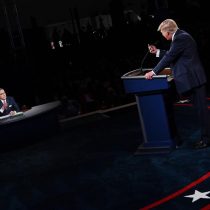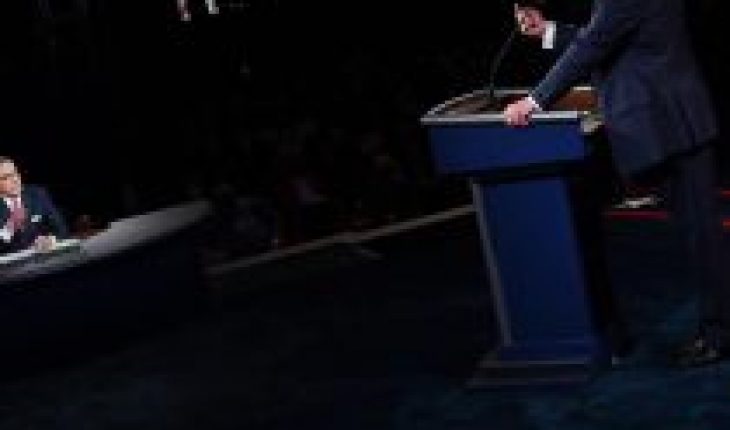
The Director of Diego Portales University’s School of Advertising, Christian Leporati analyzed the latest debate in the United States between Donald Trump, a Republican candidate, and his Democratic pair, Joe Biden. And he did so from a narrative point of view, that is, the way the discourse is delivered, a model that can be replicated in Chile.
“Somehow, the rhetorical way of operating politically that has the narrative of Donald Trump’s speech, is a way that from its inception the government, even since its election campaign that he had, began to impose itself as a style of persuasive communication, and an example of style for other international political leaders, for now I would say rather conservative or even far-right” , began by indicating in conversation with The Counter.
What is this rhetorical form of operation? “Essentially in shouting, in having a speech that has no logic or common sense but simply imposes an idea, and for that there is incurs verbal violence or even lies if possible. It is also included or characterized by a physical posture of the body of the gaze, of the tone of voice, which is essentially aggression,” he explains.
“This is a model that’s working. In Chile we have a good example of this in José Antonio Kast, in Brazil is President Jair Bolsonaro. And so one adds up and adds up, and you realize that several political leaders and potential leaders, are using this rhetorical form that is very functional and that is achieving success, because it is achieving the goal that is to access the most important office that is in any democratic republic, which is the presidency. And that’s serious,” he says.
Why is this communicational form propagandistic? “Because we are simply reliving a new stage in humanity, as we also experienced in the 20s, 30s of the last century, of major changes in politics, important changes in the culture of the Western and Eastern world, in which power begins to be redistributed again, in a different way than traditional. And that creates a wear and tear, generates tension in traditional politics, which does not know very well how to approach this, this historical context, this tangible real situation, which in Chile began in 2006 with the ‘penguins’ and ends in October last year with the social movement”, explains.
“This is crunching the atmosphere, the politics that feel powerless is crunching, along with the lobby of different interest groups, left or right, and this creates a crunch, and this usually translates into politics in authoritarianism or also populismos. In both cases, rhetorical language is going to impose that political form, that perverse, corrupt form of politics, on trump’s speech, and that some form is being imposed as rhetoric at least for now in the Western world,” he concludes.





